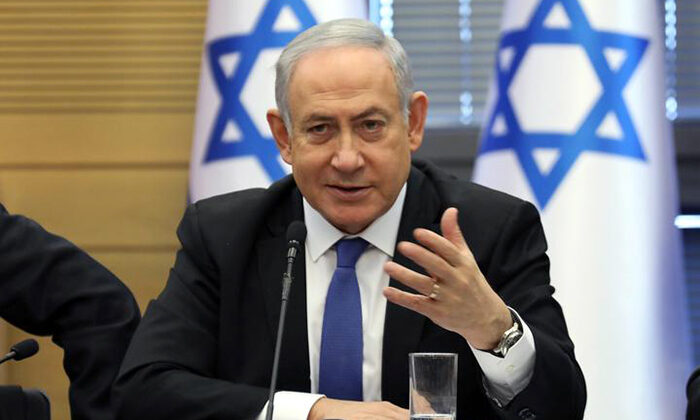
Israel’s Prime Minister Benjamin Netanyahu. Photo: AFP
JERUSALEM (Reuters) – Israel has isolated a key coronavirus antibody at its main biological research laboratory, the Israeli defence minister said on 4 May, 2020, calling the step a “significant breakthrough” toward a possible treatment for the COVID-19 pandemic.
The “monoclonal neutralising antibody” developed at the Israel Institute for Biological Research (IIBR) “can neutralise it (the disease-causing coronavirus) inside carriers’ bodies,” Defence Minister Naftali Bennett said in a statement.
The statement added that Bennett visited the IIBR on Monday where he was briefed “on a significant breakthrough in finding an antidote for the coronavirus”.
It quoted IIBR Director Shmuel Shapira as saying that the antibody formula was being patented, after which an international manufacturer would be sought to mass-produce it.
The IIBR has been leading Israeli efforts to develop a treatment and vaccine for the coronavirus, including the testing of blood from those who recovered from COVID-19, the respiratory disease caused by the virus.
Antibodies in such samples – immune-system proteins that are residues of successfully overcoming the coronavirus – are widely seen as a key to developing a possible cure.
The antibody reported as having been isolated at the IIBR is monoclonal, meaning it was derived from a single recovered cell and is thus potentially of more potent value in yielding a treatment.
Elsewhere, there have been coronavirus treatments developed from antibodies that are polyclonal, or derived from two or more cells of different ancestry, the magazine Science Direct reported in its May issue.
Israel was one of the first countries to close its borders and impose increasingly stringent restrictions on movement to hamper the domestic coronavirus outbreak. It has reported 16,246 cases and 235 deaths from the illness.

